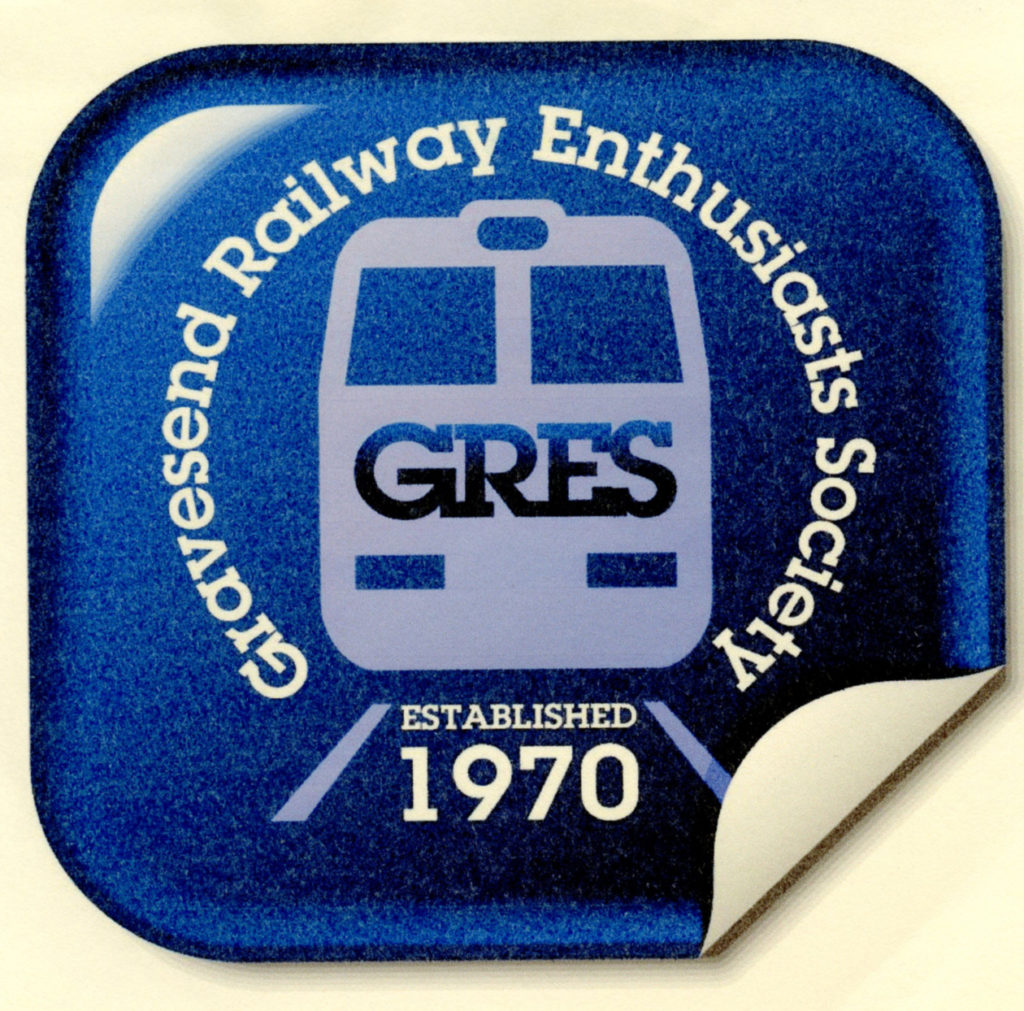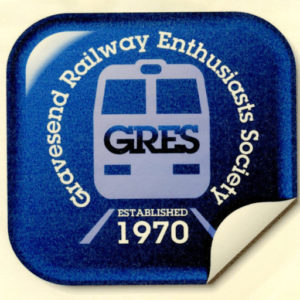Woolwich Arsenal Railways
Once the the largest military-industrial complex in Europe, the now closed Royal Arsenal at Woolwich possessed an extensive rail network of standard and 18”-0 narrow gauge (450mm) lines to serve the workshops, stores and sidings of the nearly 1,300 acre site. With connections to the Royal Dockyard at Deptford and linked to the North Kent line at Plumstead in 1876, it grew to its maximum size during the First World War, comprising 60 miles of narrow gauge, and 120 miles of standard gauge track.
The Government was quick to see the advantages of the 18” gauge system which was largely a gauge confined to defence sites and some railway works such as Horwich. Extensive systems became widespread, including those at Waltham Abbey and Chatham Dockyard. With over 60 locomotives and 1000 wagons, the Woolwich Arsenal system was the largest 18” system on the UK mainland.
A steam hauled standard-gauge passenger service was operated about the works to transport employees to their place of work. Servicing facilities for the locomotives were provided by a four-road locomotive shed housing some 50 of the Arsenal’s own standard gauge steam locomotives during World War II.
During the quiet period after World War I, the Royal Arsenal built steam locomotives as kits of parts for the Southern Railway. These were N Class Mogul 2-6-0 locomotives to the design of Richard Maunsell and were known as “Woolworths” to their crews. The Arsenal again became involved in railway construction when metal railway wagons were built for export after World War II at the rate of some 30 per day.
In 1947 a batch of Riddles designed War Department 2-8-0 locomotives were refurbished by the Arsenal for export to the Far East.
The system was originally under military control by the Royal Engineers, passing to civilian control in 1921. Railway activities continued until the 1960’s, with the last standard gauge locomotives being sold off in 1971. The Arsenal itself remained an MOD establishment until its final closure in 1994.
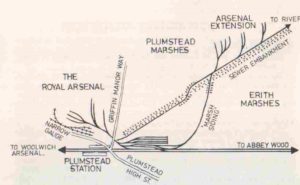
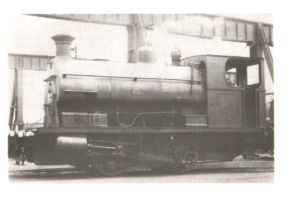
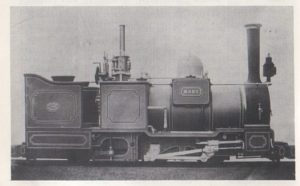
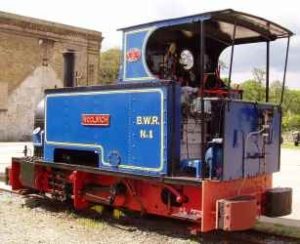
What remains today
At the Arsenal itself, English Heritage have preserved a section of mixed-guage track outside Building 19 (The old Mounting Shop).
For more information on the internal railway system, go to
www.royal-arsenal.com/railway.html
More general information can be found at
www.royal-arsenal.com/intro.html
Isle of Wight Steam railway
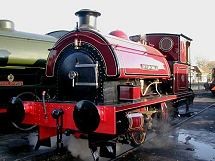
Ex Royal Arsenal loco, 0-4-0 ST 1915 built Hawthorn Leslie “Invincible” can be seen at the Isle of Wight Steam railway which has restored the loco to its original livery. ‘Invincible’ remained at Woolwich until 1955 when, after a period of storage she was given a new boiler and transferred to the Royal Aircraft Establishment at Farnborough.
For more details visit the Isle of Wight Steam Railway
Home | Isle of Wight Steam Railway (iwsteamrailway.co.uk)
https://iwsteamrailway.co.uk/heritage/our-rolling-stock/locomotives/invincible/
The Royal Gunpowder Mills at Waltham Abbey
The Royal Gunpowder Mills at Waltham Abbey, Essex have an extensive collection of ex War Department rolling stock, locos and artefacts, including ex Royal Arsenal steam loco “Woolwich”, built in 1916 by Avonside to work on waste oil. “Woolwich” is the last 18”gauge steam loco in regular use in Britain. Ex Royal Arsenal diesel traction is represented by the unique bogie locomotive ‘Carnegie’ built by Hunslet of in 1954 for Woolwich.
The aim is to rebuild a section of 18″ gauge railway to enable visitors to travel round the site by steam.
“Woolwich” the sole 18″ gauge steam locomotive in regular use in Britain.
